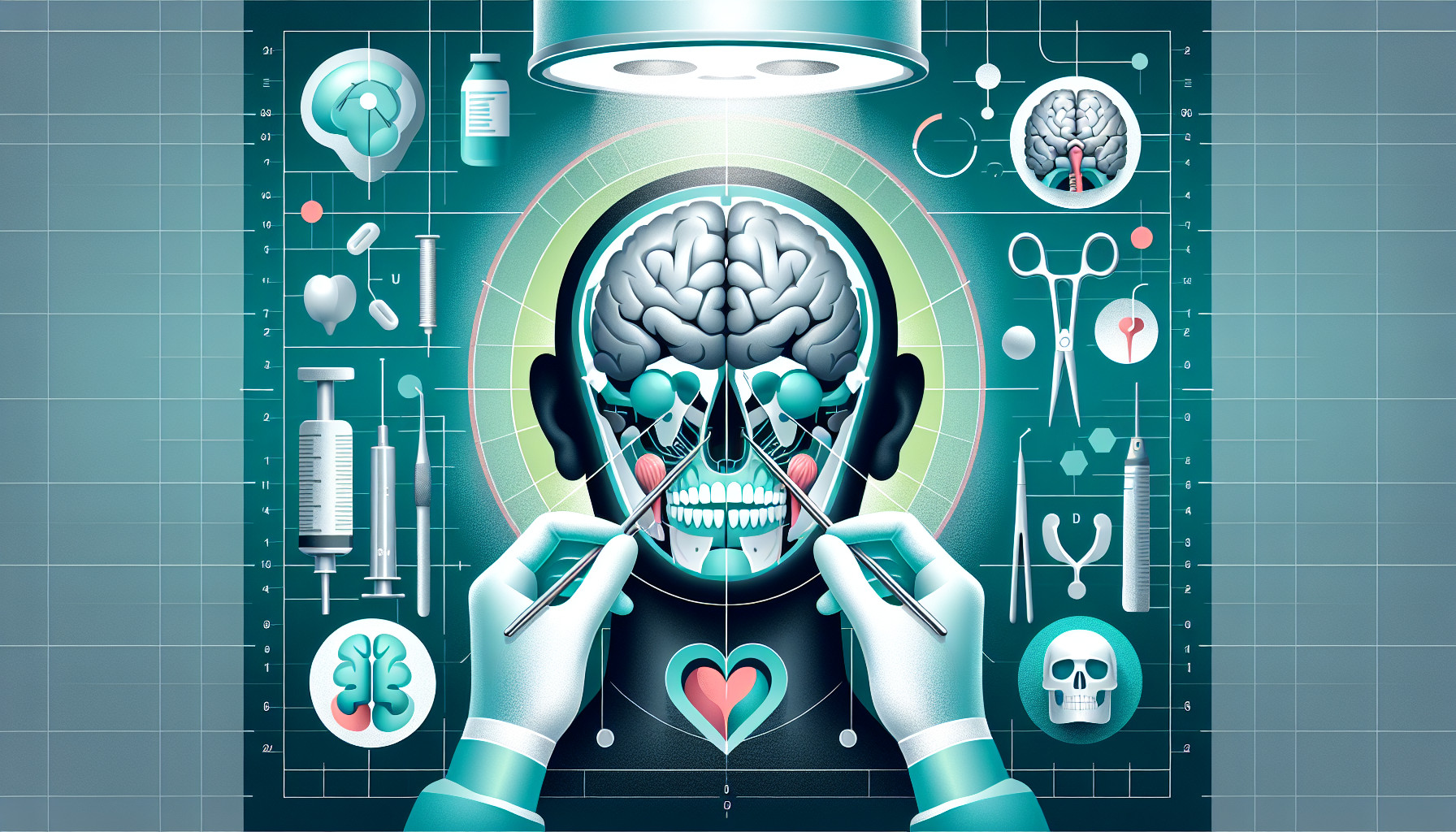Our Summary
This research is about understanding the impact of orthognathic surgery (surgery to correct conditions of the jaw and face) on a patient’s nutritional state. The researchers looked at 43 articles, but only 7 met the criteria for their study. They found that after the surgery, patients generally lost weight and their body mass index (BMI) decreased. They didn’t find any significant changes in body fat percentage, hemoglobin levels, lymphocyte counts, total cholesterol levels, and cholinesterase levels (all lab measurements that can indicate health status) between the period before the surgery and after the surgery. Interestingly, patients had higher levels of serum albumin (a protein in the blood) and total protein counts after the surgery. The surgery also led to more blood loss and an increased need for blood transfusions.
FAQs
- What is the primary focus of this research on orthognathic surgery?
- What changes were observed in patients after undergoing orthognathic surgery?
- Did the surgery have any significant impact on patients’ lab measurements like body fat percentage, hemoglobin levels, lymphocyte counts, total cholesterol levels, and cholinesterase levels?
Doctor’s Tip
A helpful tip a doctor might tell a patient about jaw surgery is to maintain a balanced and nutritious diet both before and after the surgery to support healing and recovery. It is important to focus on foods that are easy to chew and swallow, such as soft fruits, vegetables, yogurt, and soups. Adequate protein intake is essential for tissue repair, so incorporating lean meats, eggs, dairy, and legumes into your diet is important. It is also important to stay hydrated and avoid foods that may cause discomfort or irritation to the surgical site. Following your surgeon’s dietary recommendations and staying in communication with your healthcare team can help optimize your recovery process.
Suitable For
Patients who are typically recommended jaw surgery include those with:
- Severe malocclusions (misalignment of the teeth and jaws)
- Facial asymmetry
- Difficulty chewing or speaking due to jaw misalignment
- Obstructive sleep apnea
- Temporomandibular joint (TMJ) disorders
- Craniofacial anomalies
- Facial trauma or injuries
- Severe overbite or underbite
These patients may experience functional issues, aesthetic concerns, or both that can be improved through orthognathic surgery.
Timeline
Before jaw surgery:
- Patient consults with an orthodontist to discuss treatment options
- Patient undergoes orthodontic treatment to prepare the teeth for surgery
- Patient consults with a maxillofacial surgeon to discuss the surgical procedure
- Patient undergoes pre-operative tests and evaluations to assess their overall health and suitability for surgery
After jaw surgery:
- Patient undergoes the surgical procedure to correct their jaw condition
- Patient may experience pain and swelling in the jaw area
- Patient is placed on a liquid or soft food diet to allow for proper healing
- Patient may require pain medication and antibiotics to prevent infection
- Patient attends follow-up appointments with the surgeon to monitor healing progress
- Patient may undergo physical therapy to regain full function of the jaw
- Patient may experience changes in their facial appearance as the jaw heals and settles into its new position
Overall, jaw surgery is a complex procedure that requires careful planning and post-operative care to ensure a successful outcome for the patient.
What to Ask Your Doctor
- What specific changes can I expect in my jaw and facial structure after the surgery?
- How will the surgery impact my ability to chew and swallow food?
- Will I need to follow a specific diet or make any dietary modifications after the surgery?
- How long is the recovery process and when can I expect to return to my normal eating habits?
- Will I need any nutritional supplements or special medications during the recovery period?
- How will the surgery impact my overall nutritional status and what can I do to ensure I maintain a healthy diet post-surgery?
- What are the potential risks or complications related to nutrition that I should be aware of before undergoing the surgery?
- Will I need to see a dietitian or nutritionist as part of my post-operative care plan?
- Are there any specific foods or dietary habits I should avoid to support my recovery and healing process?
- How will I know if I am not getting enough nutrition during the recovery period and what should I do if this occurs?
Reference
Authors: AlQahtani FA, Kuriadom ST, Jaber M, Rama Varma S, AlShanably A, Bishawi K. Journal: J Stomatol Oral Maxillofac Surg. 2023 Dec;124(6 Suppl 2):101549. doi: 10.1016/j.jormas.2023.101549. Epub 2023 Jul 7. PMID: 37422263
